Gasoline Specific
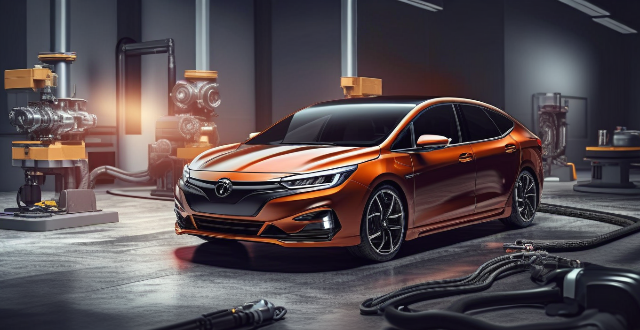
Do gasoline hybrid cars require special maintenance ?
This text discusses the maintenance requirements for gasoline hybrid cars, which combine a conventional engine with an electric motor for added efficiency. While these vehicles do not require extensive special maintenance, there are specific components that need attention. Regular maintenance such as oil changes, tire rotations, brake checks, and air filter replacements are still essential. Additionally, hybrid-specific maintenance includes monitoring battery health, checking the regenerative braking system, ensuring proper cooling of the electric motor, and maintaining transmission fluid levels. It is important to refer to the vehicle's owner's manual for specific maintenance schedules and seek out professional service when needed. By addressing both conventional and hybrid-specific maintenance needs, gasoline hybrid cars can run reliably and efficiently.
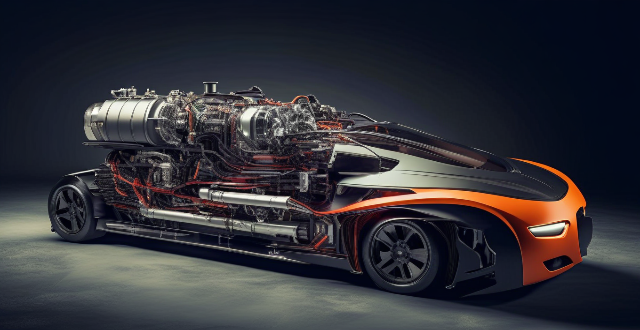
Can I still use gasoline in a gasoline hybrid car ?
Gasoline hybrid cars combine a traditional gasoline engine with an electric motor for improved fuel efficiency and reduced emissions. While they still require gasoline to operate the internal combustion engine, they offer significant savings in fuel costs over time. To maximize fuel efficiency in a gasoline hybrid car, drivers should practice eco-driving techniques, perform regular maintenance, and utilize regenerative braking settings. Gasoline hybrid cars represent a step towards reducing our reliance on fossil fuels and transitioning to cleaner energy sources.

Are gasoline hybrid cars better for the environment than traditional gasoline cars ?
Gasoline hybrid cars, also known as hybrid electric vehicles (HEVs), are becoming increasingly popular due to their potential environmental benefits. These vehicles produce fewer emissions compared to traditional gasoline cars and have better fuel efficiency. They also use regenerative braking technology, which captures energy normally lost during braking and stores it in the battery, further improving fuel efficiency and reducing emissions. However, gasoline hybrid cars also have drawbacks such as higher upfront cost, limited electric-only range, and potential environmental impacts from battery production and disposal. Traditional gasoline cars, on the other hand, are generally less expensive than gasoline hybrid cars and have a widespread refueling infrastructure. They are also often simpler and more reliable than gasoline hybrid cars. In conclusion, gasoline hybrid cars offer several environmental benefits over traditional gasoline cars, but they also come with drawbacks. The decision between a gasoline hybrid car and a traditional gasoline car depends on individual preferences, priorities, and circumstances.

How much more expensive is a gasoline hybrid car compared to a regular gasoline car ?
The cost difference between a gasoline hybrid car and a regular gasoline car can vary depending on several factors such as brand, model, features, and location. However, in general, gasoline hybrid cars tend to be more expensive than regular gasoline cars. Here are some key points to consider: - Gasoline Hybrid Cars: These vehicles typically have a higher initial cost compared to regular gasoline cars due to the additional technology required for the hybrid system. The price difference can range from a few thousand dollars to over $10,000, depending on the make and model. One of the main advantages of gasoline hybrid cars is their improved fuel efficiency. They use both gasoline and electricity to power the engine, which results in better mileage and lower fuel costs over time. While gasoline hybrid cars may have higher repair costs due to their complex systems, they often require less maintenance overall because the electric motor helps reduce wear and tear on the engine. As awareness of environmental issues grows, so does the demand for eco-friendly vehicles like gasoline hybrid cars. This increased demand can help maintain or even increase their resale value over time. - Regular Gasoline Cars: These vehicles are generally less expensive upfront as they do not require the same advanced technology as hybrid cars. These vehicles rely solely on gasoline for power, which can lead to higher fuel consumption and expenses, especially if you drive long distances or frequently idle in traffic. These vehicles may have lower repair costs initially but may require more frequent maintenance, such as oil changes and tune-ups, due to their reliance on a single power source. The resale value of regular gasoline cars may decline faster than that of hybrid cars, especially as more buyers seek out fuel-efficient options.

Do hybrid cars produce less pollution than traditional gasoline cars ?
Hybrid cars generally produce less pollution than traditional gasoline cars, but the comparison is not straightforward and various factors must be taken into account.
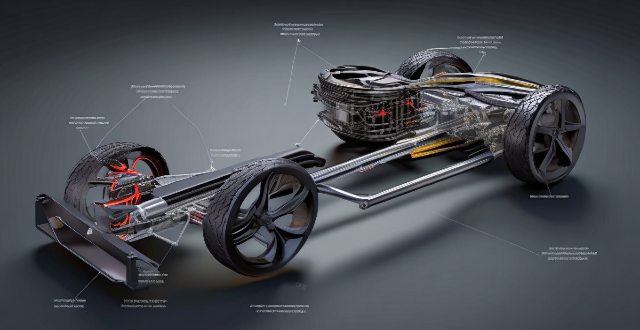
How does a gasoline hybrid car work ?
Gasoline hybrid vehicles, known as HEVs, merge an ICE with an electric motor for enhanced efficiency and reduced emissions. Key components include the ICE, electric motor, battery pack, transmission, and a generator/alternator. These cars can operate in various modes: fully on ICE power, purely electric, combined power, or through regenerative braking. The energy management controller optimizes power distribution for peak efficiency. Benefits of gasoline hybrids include better fuel economy, lower emissions, extended brake life, and potential tax incentives.

Are electric cars more expensive than gasoline cars ?
Electric cars, also known as EVs, have been gaining popularity due to their eco-friendly nature and lower operating costs. However, the initial purchase price of an electric car is often higher than that of a traditional gasoline-powered car. In this article, we will explore the cost differences between electric and gasoline cars. ## Upfront Cost **Electric Cars:** - Higher upfront cost due to expensive battery technology and limited production scale. - Prices vary depending on the model, brand, and range. - Some governments offer incentives and tax credits to offset the high initial cost. **Gasoline Cars:** - Generally less expensive upfront compared to electric cars. - Wide variety of models and brands available at different price points. - No government incentives or tax credits for purchasing a gasoline car. ## Operating Costs **Electric Cars:** - Lower operating costs due to cheaper electricity rates compared to gasoline prices. - Maintenance costs are generally lower since there are fewer moving parts in an electric motor. - Battery replacement can be costly, but it is not expected until after several years of use. **Gasoline Cars:** - Higher operating costs due to fluctuating gasoline prices and regular maintenance requirements. - More frequent oil changes, tune-ups, and other routine maintenance tasks. - Fuel efficiency varies widely among gasoline cars, affecting overall operating costs. ## Depreciation **Electric Cars:** - Depreciation rate may be higher for electric cars due to rapid advancements in technology and changing consumer preferences. - Some early adopters may experience significant depreciation if they choose to sell their electric car before its battery lifespan ends. **Gasoline Cars:** - Generally slower depreciation rate compared to electric cars. - Well-maintained gasoline cars can retain their value for longer periods. ## Resale Value **Electric Cars:** - Resale value depends on factors such as battery health, range, and charging infrastructure availability. - As more people switch to electric cars, the demand for used electric vehicles may increase, potentially boosting resale values. **Gasoline Cars:** - Resale value is typically more predictable and stable compared to electric cars. - Factors such as fuel efficiency, brand reputation, and vehicle condition affect resale value. In conclusion, while electric cars may have a higher upfront cost, they offer lower operating costs and potentially better resale value in the future. It's essential for consumers to consider both short-term and long-term costs when deciding between an electric or gasoline car.

What are the benefits of a gasoline hybrid engine ?
The article discusses the advantages of a gasoline hybrid engine, which is a combination of a traditional internal combustion engine and an electric motor. The benefits include improved fuel efficiency through reduced fuel consumption, regenerative braking, and start-stop technology; lower CO2 emissions and decreased pollutants resulting in cleaner air quality; and enhanced performance with instant torque, smooth driving experience, and extended brake life due to regenerative braking. Overall, gasoline hybrid engines provide a balance between power and efficiency, making them an attractive option for eco-conscious drivers.
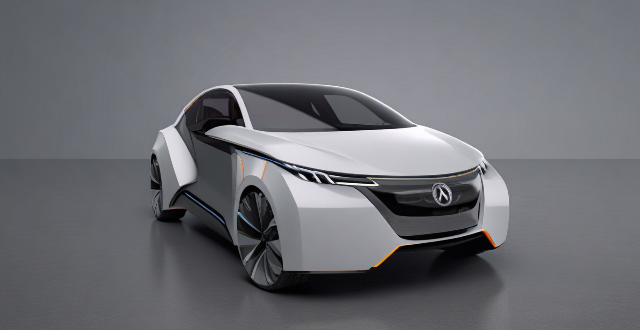
What is the difference between a gasoline hybrid and an electric car ?
The main difference between a gasoline hybrid and an electric car is their fuel source and how they generate energy. Gasoline hybrids run on a combination of gasoline and electricity, while electric cars run solely on electricity. Gasoline hybrids produce lower emissions than traditional gasoline-powered vehicles but still require gasoline to operate. Electric cars produce zero tailpipe emissions but may still result in emissions from electricity production. Finally, gasoline hybrids typically have a longer range than electric cars due to their ability to switch between using gasoline and electricity depending on driving conditions.

How do parallel hybrid electric vehicles (PHEVs) compare to traditional gasoline cars in terms of performance ?
Parallel Hybrid Electric Vehicles (PHEVs) offer better acceleration and fuel efficiency than traditional gasoline cars but may have lower top speeds and require more time for recharging. Gasoline cars have higher top speed capabilities and quicker refueling but are less efficient and require more maintenance. The choice between the two depends on individual needs and preferences.

How far can a gasoline hybrid car travel on a full tank of gas ?
The text discusses the fuel efficiency and range of gasoline hybrid cars on a full tank of gas. Factors affecting fuel efficiency include driving habits, traffic conditions, vehicle maintenance, and weather conditions. Gasoline hybrid cars typically have higher fuel efficiency ratings than traditional gasoline-powered cars due to their combination of an electric motor and a gasoline engine. The estimated range of many gasoline hybrid cars is around 300-500 miles on a full tank of gas, with some having larger fuel tanks or higher fuel efficiency ratings allowing for greater ranges. Maximizing fuel efficiency can be achieved by considering factors such as driving habits and vehicle maintenance.

How do power batteries compare to traditional gasoline engines in terms of cost and efficiency ?
Power batteries and traditional gasoline engines are two different types of energy sources that are used to power vehicles. In this article, we will compare the cost and efficiency of power batteries and traditional gasoline engines. Power batteries have a higher initial cost than traditional gasoline engines, but require less maintenance and have lower fuel costs. They also have a higher energy conversion efficiency and can recharge through regenerative braking. However, they have a limited range compared to traditional gasoline engines. Traditional gasoline engines have a lower initial cost than power batteries, but require more maintenance and have higher fuel costs. They also have a lower energy conversion efficiency and cannot recharge through regenerative braking. However, they have a longer range than power batteries. Overall, while power batteries have a higher initial cost and limited range compared to traditional gasoline engines, they offer several advantages in terms of cost and efficiency. As technology continues to advance, it is likely that power batteries will become even more cost-effective and efficient compared to traditional gasoline engines.
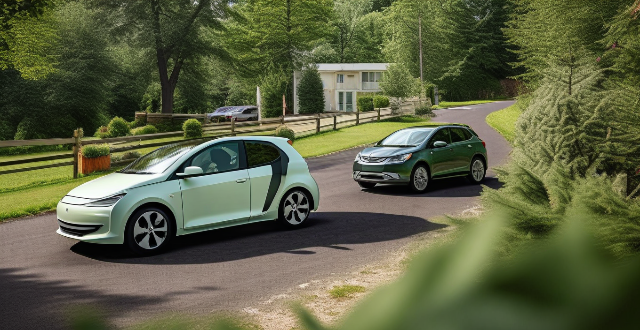
Are there any tax incentives for owning a gasoline hybrid car ?
Tax incentives for owning a gasoline hybrid car include federal tax credits, state and local tax breaks, and renewable fuel tax credits. These benefits aim to encourage eco-friendly vehicle choices and reduce greenhouse gas emissions.

What factors should be considered when sizing a drive motor for a specific load ?
Factors to consider when sizing a drive motor for a specific load include the type of load, load inertia, duty cycle, environmental conditions, electrical requirements, physical constraints, and safety and regulatory requirements.

What benefits do sports-specific training programs offer ?
Sports-specific training programs offer several benefits, including improved performance, increased physical fitness, enhanced mental toughness, better recovery and injury prevention, and personalized coaching and support. These programs focus on developing the skills, techniques, and physical abilities required for success in a particular sport, helping athletes reach their full potential while also improving their overall health and well-being.
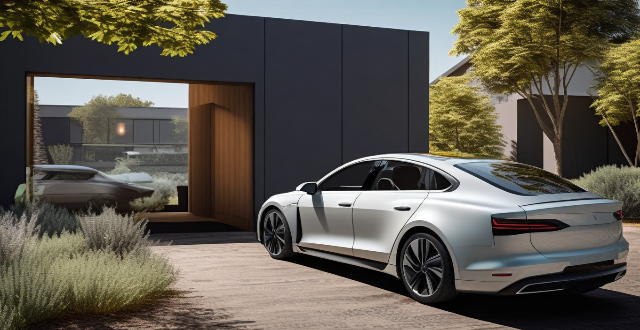
Is it more cost-effective to drive an electric or gasoline-powered car ?
In this article, we explored the cost-effectiveness of driving an electric car versus a gasoline-powered car. While electric cars may have a higher initial cost, they offer several advantages in terms of cost-effectiveness over the long term. Lower maintenance costs, cheaper fuel costs, and potential tax incentives make electric cars a more economical choice for many consumers. Additionally, electric cars have a smaller environmental impact compared to gasoline-powered cars, making them a more sustainable option for transportation.
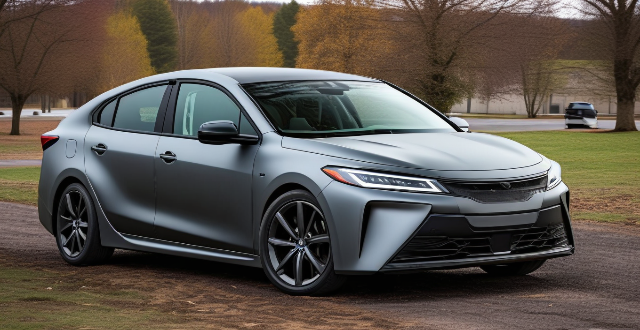
How do gasoline hybrid cars perform in cold weather ?
Gasoline hybrid cars' performance in cold weather can be affected by reduced battery capacity, thicker engine oil, and decreased tire traction. Proper maintenance and adjustments to driving habits are crucial for safe and efficient operation during the colder months.
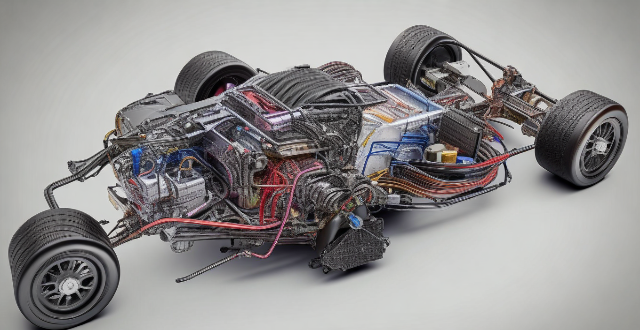
How do electric cars compare to hybrid cars ?
Electric cars run solely on electricity and produce zero emissions, while hybrid cars combine a gasoline engine with an electric motor for improved fuel efficiency. Electric cars offer environmental benefits and lower operating costs but have limited range and long charging times. Hybrids provide a balance between gasoline-powered vehicles and electric cars, with improved fuel efficiency and no range limitations but still rely on gasoline and produce emissions. The choice between the two often depends on individual needs and preferences.

How does one select the appropriate gloves for handling specific chemicals ?
When dealing with chemicals, it is crucial to choose the right gloves to protect your hands from potential harm. Here are some steps to help you select the appropriate gloves for handling specific chemicals: 1. Identify the type of chemical you will be working with, such as acids, bases, solvents, and oxidizers. 2. Determine the level of protection needed by consulting a material safety data sheet (MSDS) or a hazardous materials reference guide. 3. Choose the right glove material based on the level of protection needed, such as nitrile, latex, neoprene, butyl, or viton/teflon. 4. Consider other factors such as size, fit, thickness, texture, and cuff style when selecting gloves. 5. Test the gloves before using them for handling specific chemicals to ensure they provide adequate protection. By following these steps, you can select the appropriate gloves for handling specific chemicals and ensure your hands are protected from potential harm.
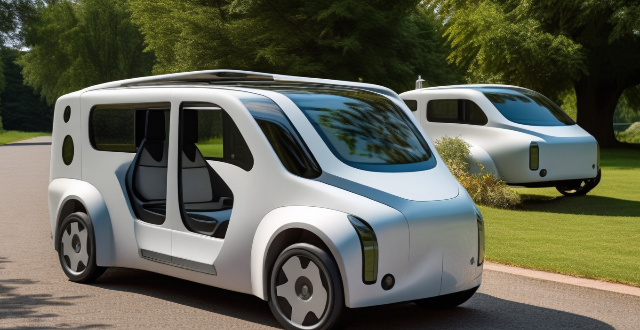
How do CHEVs compare in performance to fully electric vehicles ?
Chevrolet's hybrid electric vehicles (CHEVs) and fully electric vehicles (EVs) offer unique benefits and drawbacks. CHEVs have a longer range than EVs because they use both gasoline and electricity to power the vehicle, while EVs rely solely on electricity to power the vehicle. CHEVs are more efficient than traditional gasoline-powered vehicles, but less efficient than EVs. EVs are the most efficient type of vehicle because they produce zero emissions and use less energy than CHEVs. CHEVs typically have slower acceleration times than EVs due to their reliance on both gasoline and electricity, while EVs have faster acceleration times because they rely solely on electricity to power the vehicle. CHEVs require less maintenance than traditional gasoline-powered vehicles, but more maintenance than EVs. EVs require very little maintenance compared to CHEVs and traditional gasoline-powered vehicles.

Are CHEVs more expensive to maintain compared to regular hybrid vehicles ?
The article discusses the maintenance costs of Chevrolet (CHEV) and regular hybrid electric vehicles (HEVs), which are both designed to reduce fuel consumption and emissions. The powertrain configurations and operational strategies of CHEVs and regular HEVs differ, with CHEVs typically having a larger battery pack and prioritizing using electricity from the battery before switching to gasoline, while regular HEVs use both gasoline and electricity simultaneously or alternate between them based on driving conditions. Regarding maintenance costs, CHEVs may require more frequent battery replacements due to their larger size and higher usage, but their engines may experience less wear and tear since they spend more time in electric mode. On the other hand, regular HEV engines may require more maintenance due to constant switching between gasoline and electric power, but they generally have smaller batteries that last longer. In terms of transmission maintenance, CHEV transmissions may be simpler since they rely primarily on electric motors, while regular HEV transmissions may be more complex due to the need to manage both gasoline and electric power sources. Tire maintenance may also differ between CHEVs and regular HEVs, with CHEV tires potentially wearing differently due to regenerative braking systems, while regular HEV tires may not experience significant differences in wear patterns compared to traditional gasoline vehicles. Overall, while CHEVs may have higher initial costs due to their larger battery packs, they could potentially save money in the long run by reducing engine maintenance needs. However, regular HEVs might require less frequent battery replacements and simpler transmission maintenance. It is essential to consider individual driving habits and vehicle usage when evaluating maintenance costs for CHEVs and regular HEVs.

How do I find scholarships specific to my field of study ?
Finding scholarships specific to your field of study can be a challenging task, but it is definitely worth the effort. Here are some steps you can take to find scholarships that match your academic interests and career goals: 1. Research your field thoroughly to identify key organizations, associations, and institutions that offer scholarships related to your area of interest. 2. Use online scholarship search engines such as Fastweb, ScholarshipOwl, and Cappex to find scholarships based on your academic achievements, extracurricular activities, and career goals. 3. Check with your school's financial aid office for information about scholarships specific to your field of study and resources such as scholarship databases or lists of local organizations that offer scholarships. 4. Attend scholarship workshops and events hosted by your school or local community organizations to network with professionals in your field and learn about scholarship opportunities. 5. Contact professional organizations and associations in your field directly to find out about available scholarships and application requirements.

How do you analyze the performance of a specific industry within the stock market ?
Analyzing the performance of a specific industry within the stock market requires a comprehensive understanding of various factors that can impact the industry's growth and profitability. Key steps to follow include identifying the industry, studying its trends, analyzing the financial performance of key players, evaluating the competitive landscape, considering macroeconomic factors, using financial ratios and metrics, and considering industry-specific factors. By following these steps, you can gain a better understanding of the performance of a specific industry within the stock market and make informed investment decisions based on your analysis.

Are there any photography workshops or tours that focus on specific travel locations ?
Photography workshops and tours that focus on specific travel locations offer a unique opportunity for photographers to capture stunning images while exploring new places. These experiences are designed to help participants improve their photography skills, learn about the local culture, and create lasting memories. In this guide, we will explore some of the best photography workshops and tours available for various travel destinations. Benefits of participating in a photography workshop or tour include skill development, cultural immersion, networking opportunities, and personal growth. Examples of popular photography workshops and tours include landscape photography in Iceland, wildlife photography in Africa, street photography in Tokyo, underwater photography in the Maldives, and architectural photography in Europe. Participating in a photography workshop or tour focused on a specific travel location offers an unparalleled opportunity to combine your passion for photography with your love of travel. Whether you're interested in landscapes, wildlife, street scenes, underwater adventures, or architectural wonders, there is a workshop or tour out there waiting for you to discover it. So grab your camera, pack your bags, and get ready for an unforgettable photography journey!

How do I choose a gift for someone with specific hobbies or interests ?
Choosing a gift for someone with specific hobbies or interests can be both exciting and challenging. Here are some tips to help you find the perfect gift: 1. **Identify their hobbies or interests** by observing their daily activities or asking them directly. 2. **Research and educate yourself** about their hobby, join online communities, and learn what products or accessories are popular among enthusiasts. 3. **Consider their skill level** and choose gifts that will help them get started, improve their skills, or cater to their specific needs. 4. **Think outside the box** and consider giving experiences related to their hobby or subscription services that keep their hobby fresh and exciting. 5. **Personalize the gift** by adding monogrammed items or customized designs. 6. **Don't forget about presentation** by wrapping the gift nicely, choosing a beautiful gift bag, and including a handwritten note expressing your appreciation for their friendship.

How much does it cost to maintain an electric car ?
Maintaining an electric car is generally more affordable than maintaining a traditional gasoline-powered car. However, the cost can vary depending on several factors such as the make and model of the car, its age, and the specific services required. In this article, we will discuss the different costs associated with maintaining an electric car. The initial cost of purchasing an electric car may be higher than that of a conventional car due to the expensive battery technology. However, the long-term savings in fuel and maintenance costs often outweigh this initial expense. One significant cost associated with owning an electric car is the eventual replacement of the battery pack. The lifespan of an electric car's battery can range from 100,000 miles to 200,000 miles or more, depending on usage and charging habits. When the time comes for a replacement, it can be quite costly. The price varies widely based on the vehicle's make and model, but it typically ranges from $5,000 to $15,000. Electric cars have fewer moving parts than traditional cars, which means they require less maintenance over time. Tire rotation and replacement are necessary for both electric and gasoline-powered vehicles. The cost will depend on the type of tire you choose and your driving habits. Since regenerative braking systems are used in most electric cars, brake pads and rotors last longer than those in traditional cars. Therefore, brake service is less frequent and less expensive for electric cars. Electric cars do not require engine air filters like gasoline-powered cars since they don't have engines that burn fuel. This eliminates the need for regular filter changes and their associated costs. Electric cars do not have engines that require oil changes like gasoline-powered cars do. This eliminates the need for regular oil changes and their associated costs. Electric cars do not have cooling systems like traditional cars do since they don't produce exhaust heat from combustion engines. This eliminates the need for regular coolant system maintenance and its associated costs. There are also other costs associated with owning an electric car that should be considered: If you don't have access to a public charging station near your home or workplace, you may need to install a charging station at your residence or business location. The installation cost can vary widely based on several factors such as the type of station you choose and whether any electrical upgrades are needed. Electricity prices vary by region and provider, so it's essential to research local rates before purchasing an electric car. Additionally, if you plan to charge your car at home overnight when electricity rates are lower, you could save money on energy costs compared to charging during peak hours. In conclusion, while the initial cost of purchasing an electric car may be higher than that of a conventional car due to the expensive battery technology, the long-term savings in fuel and maintenance costs often outweigh this initial expense. Overall, maintaining an electric car is generally more affordable than maintaining a traditional gasoline-powered car due to fewer moving parts and less frequent maintenance requirements.
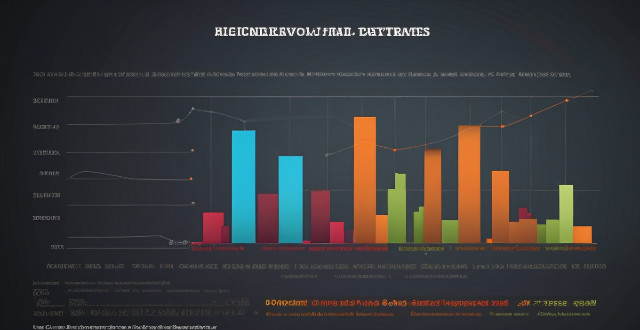
What factors influence the performance of tech stocks ?
Tech stocks are influenced by macroeconomic conditions, industry-specific factors, and company-specific factors. Macroeconomic conditions include interest rates and economic growth. Industry-specific factors include regulatory changes and technological advancements. Company-specific factors include financial health and leadership and management.

What services do sports rehabilitation centers offer ?
Sports rehabilitation centers offer a variety of services to help athletes recover from injuries and improve their overall performance. These services include physical therapy, athletic training, strength and conditioning programs, sport-specific training, and recovery strategies. Physical therapy involves manual therapy, therapeutic exercise, and functional training to regain strength, flexibility, and mobility in injured areas. Athletic trainers assess injuries, develop personalized rehabilitation plans, and implement prevention strategies to reduce the risk of future injuries. Strength and conditioning programs focus on building muscle strength, increasing endurance, and improving flexibility through resistance training, cardiovascular training, and stretching exercises. Sport-specific training involves developing skills and techniques required for success in a particular sport, as well as mental preparation for competition. Recovery strategies such as cryotherapy, massage therapy, and proper hydration and nutrition help athletes recover from intense training sessions or competitions more quickly and efficiently.

How much does a Series Hybrid Electric Vehicle cost ?
This text discusses the cost of series hybrid electric vehicles (HEVs). The average price range of a new series HEV is between $20,000 and $40,000. Several factors affect this price range, including brand, model, features, battery pack size, and location. The article also highlights other factors that can influence the cost of a series HEV, such as fuel efficiency, electric motor power, driving range, and charging infrastructure availability. In conclusion, while series HEVs may have a higher upfront cost compared to traditional gasoline vehicles, they offer long-term savings on fuel and maintenance expenses. It is essential to research and compare different models based on specific needs and budget when considering purchasing a series HEV.